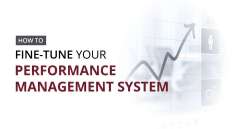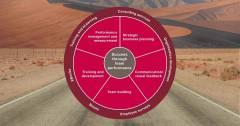Individuals, teams and whole departments blaming each other, and forming “silos” and “castles with moats” is arguably the biggest waste of organizational energy and an “invisible germ” that distorts our outlook. No individual or team can solve a problem until they accept responsibility for it – or at least for those aspects of the problem that are under their control.
This philosophy is very relevant in industry today because of an us and them cultures, and the need to change from security from the company or the union philosophy to security through performance philosophy. Feelings of anger and betrayal must be dealt with before teams or individuals can get into a problem-solving mode. As Peter Drucker said:
It does not matter whether the worker wants responsibility or not. The enterprise must demand it of him.
This can be very difficult, as many employees in large organizations are survivors in long-running wars, a few of the most popular are:
- Maintenance versus Production
- Marketing versus Distribution
- Production versus Marketing
- Management versus The Unions
- Head Office versus The Branches
- etc.
As long as we personalize problems – think about them only in terms of who is at fault – we’re going to continue to have them, because the causes more likely reside in the system than in a person. Blaming people is a low-yield strategy for improvement; the biggest opportunities, the biggest leverage, lie in improving our work processes.
Brian L. Joiner
People are not incompetent: problems arise because the essential components and systems of which they are a part have not been properly designed. In other words, given the right environment, people will perform. Encouraging people to focus on the essential components of team performance concentrates their efforts on addressing problems, rather than fixing blame and trying to change people. Engineering a work environment conducive to team performance will get widespread support and will make teams more successful.
If we are going to survive in the future we must find ways to operationalize and integrate accountability as a core value. We must create an environment where we can count on one another and most of all where we can count on ourselves to achieve our desired outcomes.
Mark Samuel
We help our clients avoid the Blame Game by developing and implementing a proactive accountability matrix so that every individual, team member, and team; understands exactly what is under their control, so they can choose to take personal responsibility, in an aligned and unified manner. (Be proactive – is Stephen Covey’s first principle of a highly effective person)
We have found this is an essential organizational component in the journey towards excellence.
TALK TO US ABOUT HOW WE CAN HELP YOUR BUSINESS
Book an obligation free clarity call to discuss our programs and your requirements.
Online Access, on our Learning Management System, or yours, to all five Sacher Associates courses:
- A Commonsense Approach to Business Planning
- Performance Measures Applied
- Performance Linked Communication
- Success Through Team Performance
- Performance Linked Learning
Discover how we can help your business increase productivity and improve performance:
- Discussion on consulting requirements
- Diagnostic review of your company
- Multiple User Access
- Access to Sacher Associates exclusive closed Facebook Group
- Customised courses and delivery solutions








